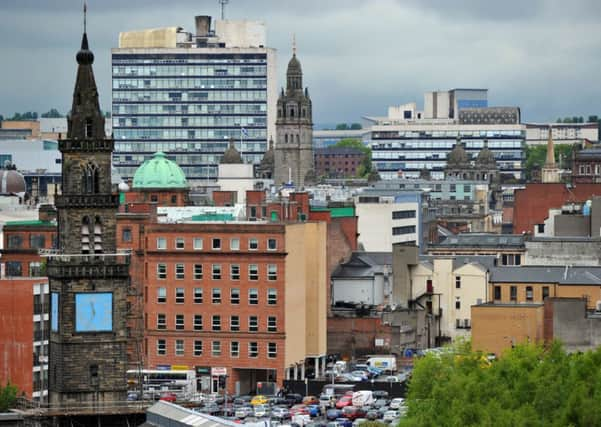One in four baby boys in Glasgow won’t live to 65


Figures from the Office for National Statistics reveal public health problems continue to ail Scotland’s largest city, at a time when it is preparing to host the Commonwealth Games.
The findings show that only 75 per cent of boys and 85 per cent of girls born in the city will reach their 65th birthday.
Advertisement
Hide AdAdvertisement
Hide AdThe average life expectancy of babies born in Glasgow between 2010 and 2012 was 72.6 years for boys and 78.5 years for girls.
The projected lifespan for a new generation of Glaswegians contrasts starkly with the best-performing areas in the UK.
Boys born in Dorset, the best-performing area for males, can expect to live until 83, while girls can expect to reach 86.6.
The statistics also highlight the shorter life expectancy in Glasgow compared to areas just a few miles outside the city.
In the neighbouring region of East Dunbartonshire, boys born in the same three-year timeframe can expect to live nearly eight years longer, with a life expectancy of 80.1. With a lifespan of 83.4 years, girls can expect to live nearly five years longer.
The latest figures have prompted calls for the Scottish Government to focus its budget on helping the poorest communities in an attempt to tackle inequality, as the so-called “Glasgow Effect” – a term which refers to the poor health of the cityfolk – continues to cause early deaths.
The Scottish Government said it was tackling health problems, citing legislation such as the smoking ban, but stressed the issue “cannot be solved with health solutions alone”.
Although Glasgow fared worst in the study, other areas in Scotland were also flagged as having among the lowest UK life expectancies. Five other Scottish local authorities – Inverclyde, West Dunbartonshire, Dundee, North Lanarkshire and Renfrewshire – featured in the bottom ten for life expectancies for newborn boys.
Advertisement
Hide AdAdvertisement
Hide AdFive councils excluding Glasgow – West Dunbartonshire, North Lanarkshire, Dundee, Inverclyde and West Lothian – were named in the respective table for newborn girls.
Scotland-wide, the average life expectancy for boys and girls at birth was 76.6 and 80.8 years, compared to the UK averages of 78.9 and 82.7 years.
A 2010 study analysing public health in Glasgow, Manchester and Liverpool – cities with almost identical levels of deprivation – found there were 900 extra deaths a year in Glasgow between 2003 and 2007.
The report, co-authored by David Walsh from the Glasgow Centre for Population Health, said while deprivation was a “fundamental determinant of health”, it was “only one part of a complex picture”. Mr Walsh said life expectancy was in part influenced by the “conditions in which people live and the opportunities they have in life”.
Scottish Labour’s health spokeswoman, Jackie Baillie MSP, said: “We need to redouble our efforts and have a clear focus on tackling inequality, whether it is in health, housing, education or wealth.”
Jackson Carlaw, health spokesman for the Conservatives, said there were “reasons to be optimistic” about improving Glasgow’s health record, pointing to better facilities following the Commonwealth Games.
However, he added: “It is also time for the Scottish Government to take a greater role in tackling Glasgow’s massive health inequalities.
“Even modest targets on school PE lessons have been consistently missed and the provision of health visitors, who can make such a difference to the health of young children, falls way short of what is needed.
Advertisement
Hide AdAdvertisement
Hide AdGlasgow City Council said that while some areas of the city “compare with any other part of the country,” it “fully recognises significant health inequalities do exist in those areas that are most affected by deprivation”.
A spokesman explained:
“Addressing these inequalities is of fundamental importance for the council and its community planning partners and steps are being actively taken which we believe will make a long-term difference.”